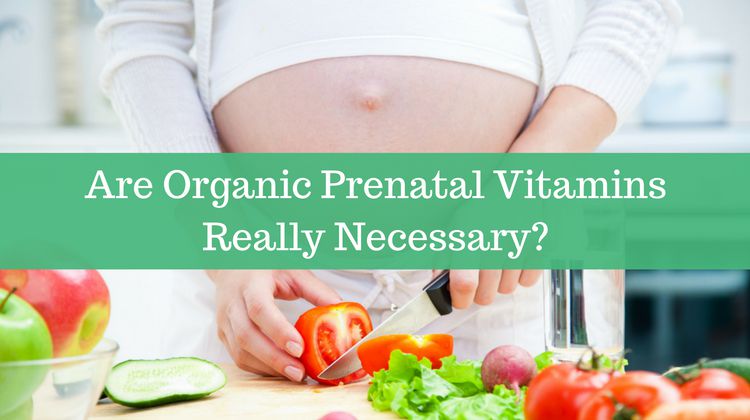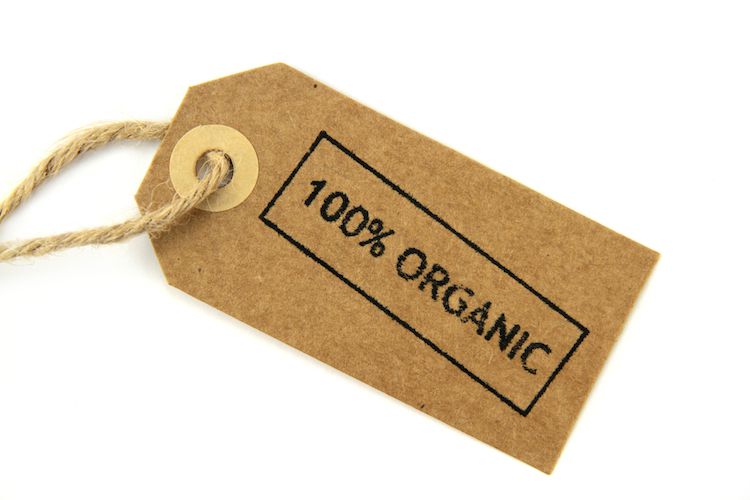As a loving and cautious mommy to be, you’re probably wondering if you need organic prenatal vitamins.
“Organic” has become the new gold standard for health and naturally it’s being applied to supplements now, too.
And since prenatal supplements are so beneficial for you and baby (we wrote all about that here), then it makes sense to pair the two together.
But it’s hard to know what’s hype and what’s real when it comes to supplements.
Well, that’s why we’re here!
Here’s the quick down low of organic prenatal vitamins to help you decipher if it’s a pregnancy “mama-must-have” or not.
Categories Of Organic Labeling
The United States Department of Agriculture (USDA) states the goal of organic foods and farming is to: “Integrate cultural, biological, and mechanical practices that foster cycling of resources, promote ecological balance, and conserve biodiversity.”
But there’s a lot of confusion and controversy around the label “organic”.
It seems simple enough; if it’s organically grown or contains organic ingredients…then it’s organic!
Right? Well, not so fast.
As with most things, it’s not clearly black and white.
The lack of cohesion stems from the fact that there are multiple grades of organic labeling in the United States.
Let’s take a quick look at each main category.
“100 Percent Organic”
This is the truest form of organic but fairly uncommon since it’s sometimes difficult to achieve.
These are usually for single-ingredient supplements and foods.
To be 100 Percent Organic, the product must show an ingredient list and display the name or logo of the USDA accredited agent that certified the final certified of the finished product.
They may only contain ingredients that are 100% organic certified.
These supplements should contain zero additives, synthetics, chemicals, genetically engineered substances, or pesticides.
They have the USDA Organic Seal on the label.
“USDA Organic” or “Organic”
“USDA Organic” supplements must contain at least 95% organic ingredients.
So 95% of the product should be free of synthetic additives like dyes, pesticides, industrial solvents, genetically engineered substances, and chemical fertilizers. The remaining 5% non-organic ingredients can include synthetics or additives as long as they’re on The National List of Allowed and Prohibited Substances.
The label must have a list that identifies the organic vs. the non-organic ingredients, and the name of the organic certifier.
The label will display the USDA Organic Seal on it.
“Made With Organic”
These products must be made with at least 70% organic ingredients that are free of synthetics like chemicals, pesticides, dyes, and genetically modified ingredients.
The remaining 30% of the ingredients may not be processed with additives on the special exclusion list.
The label needs to identify the organic and the non-organic items and name the organic certifier.
It should show something like this on the bottle: “made with organic [specific ingredients]”.
This category cannot display the USDA seal.
Organic vs. Synthetic Vitamins
Image via What To Expect
Now we know the main categories of organic labeling, but what about the difference between organic and synthetic?
We could write a book about this but let’s keep it to the basics.
Synthetic vitamins are isolated single nutrients that are produced in a lab.
Organic vitamins are derived from real food.
They’re considered whole-food supplements because you get the full spectrum of the nutrient.
This means you get the naturally occurring sidekicks like micronutrients, enzymes, antioxidants, and co-factors that are normally present in whole food.
Whole-food supplements help your body better absorb and utilize the nutrients.
Organic Vitamin Benefits & Disadvantages
Image via Mind Body Green
Organic prenatal vitamins are definitely beneficial.
They offer a cleaner and safer option for supplementation.
It helps reduce your intake of harmful pesticides and chemicals.
Additives like artificial colorings, flavorings, and preservatives that you and baby don’t need.
Organic whole-food prenatal vitamins provide more of the full package of nutrients as opposed to the artificially isolated version.
This helps you naturally absorb, utilize, and fully optimize the nutrients.
Synthetic versions can even be dangerous because you’re getting a highly concentrated amount of the vitamin, instead of the natural quantities like you’d get from real food.
This could lead to harmful build-ups and toxicity of that nutrient.
There’s really only one main disadvantage of organic vitamins.
Organic supplements are usually more expensive than their synthetic counterparts.
So, Should You Go With Organic Supplements?
Image via American Pregnancy
Utilizing organic prenatal vitamins is completely a personal choice for each individual mommy.
There are definite benefits to it since it helps cut back on yucky chemicals and additives and increases natural utilization.
However, it’s easy to go overboard with the decision.
You don’t have to stress about every little thing being organic.
Just do your best and go organic when possible.
Overall, balanced nutrition and health, both physical and mental, will be the golden ticket for you and baby to be!




